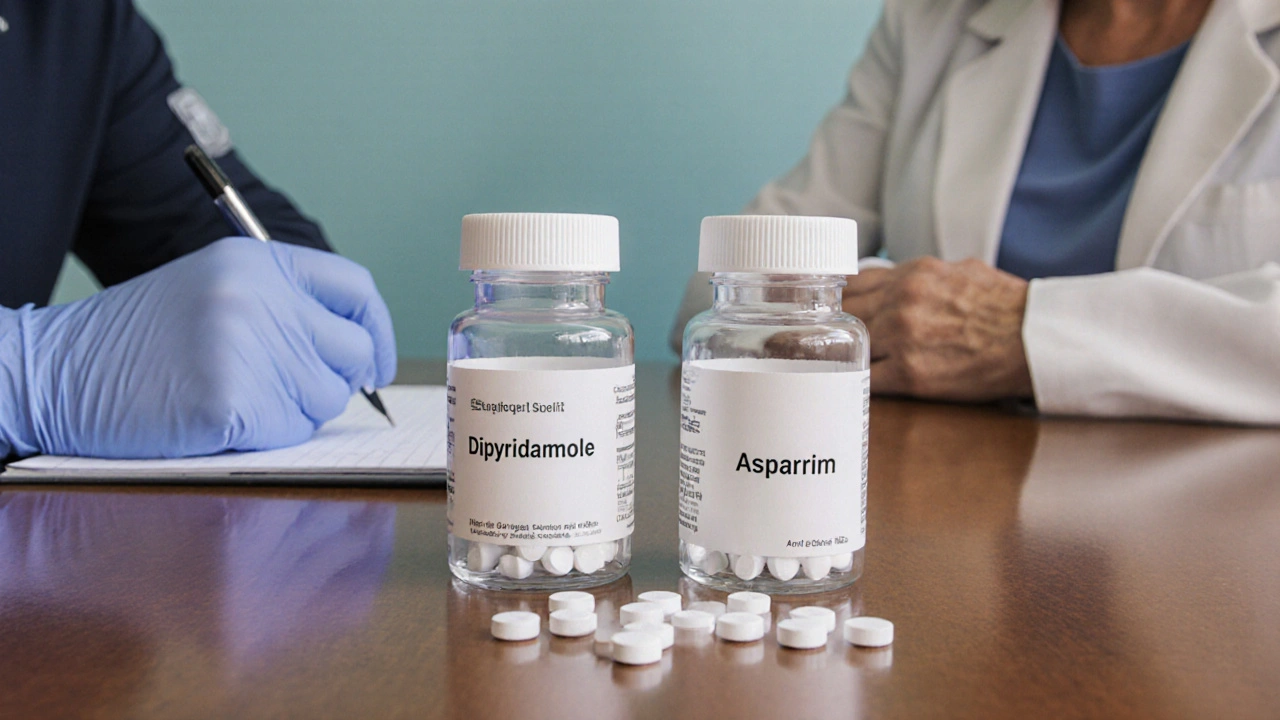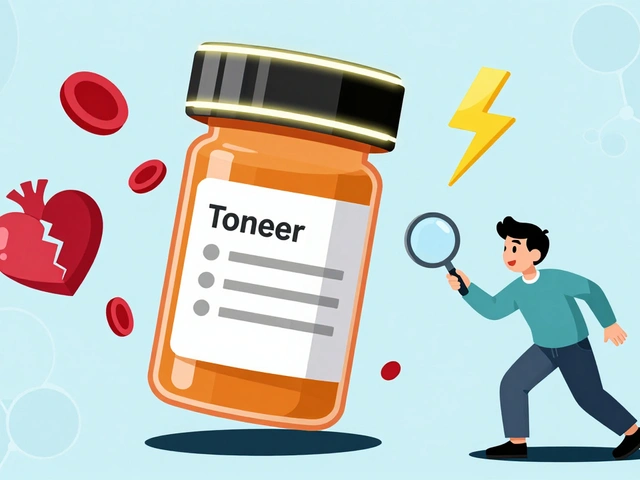Dipyridamole Alternatives: Your Guide to Safer Blood‑Clot Prevention
When looking at dipyridamole alternatives, drugs that can replace dipyridamole for preventing blood clots. Also known as dipyridamole substitutes, it’s part of antiplatelet therapy and includes options like clopidogrel or aspirin. In plain terms, these alternatives aim to stop platelets from sticking together, which reduces the risk of strokes, heart attacks, and other clot‑related events. The idea is simple: if dipyridamole isn’t right for you, there are other ways to achieve the same protective effect.
How the Main Alternatives Work and When to Use Them
Antiplatelet therapy encompasses several drug families, each with its own mechanism. Aspirin irreversibly blocks COX‑1, lowering prostaglandin production and thereby reducing platelet activation. It’s cheap, widely available, and often the first choice for people with a history of heart disease. However, aspirin can irritate the stomach and increase bleeding risk, so doctors may look for a gentler option for patients with ulcers or a tendency to bleed.
Clopidogrel, on the other hand, targets the P2Y12 receptor on platelets, preventing ADP‑mediated aggregation. It’s a go‑to when aspirin isn’t tolerated or when a stronger effect is needed, such as after stent placement. Clinical studies show clopidogrel reduces recurrent stroke rates in patients who can’t take dipyridamole. The downside? Some individuals carry genetic variations that make the drug less effective, and it can also cause bruising or bleeding.
Other noteworthy alternatives include ticagrelor and prasugrel, both also P2Y12 inhibitors but with faster onset and more predictable response. Ticagrelor doesn’t require metabolic activation, so it works well for people who don’t respond to clopidogrel. Prasugrel is potent but is usually reserved for high‑risk patients because it carries a higher bleeding risk. When choosing any of these, doctors weigh factors like age, kidney function, other medications, and the specific cardiovascular condition being treated.
Here’s what you need to know about dipyridamole alternatives: they all aim to keep platelets from forming clots, but they differ in how they get the job done, side‑effect profiles, and cost. Understanding these nuances helps you and your healthcare provider pick the right match.
So, whether you’re trying to avoid dipyridamole’s side effects, looking for a once‑daily regimen, or need something that works when aspirin isn’t an option, this collection of articles below breaks down each option in detail. You’ll find practical dosage tips, safety warnings, and real‑world advice to help you make an informed choice and stay on top of your heart‑health plan.

Dipyridamole vs Alternatives: Benefits, Side Effects, and When to Use
Compare dipyridamole with clopidogrel, aspirin, ticagrelor and more. Learn mechanisms, side effects, dosing, and when each antiplatelet is best.
View More




